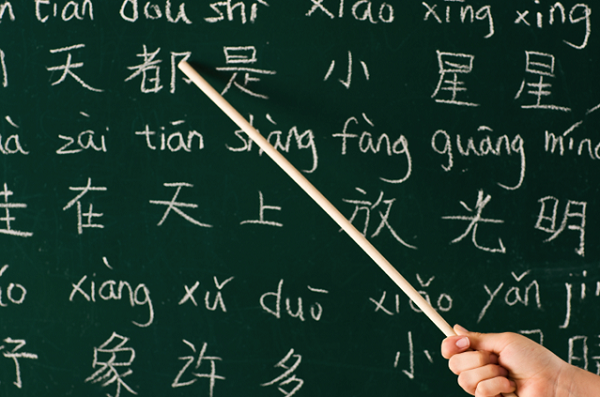Top 10 Chinese Phrases for New Expats
Guest Post Written by Narelle Evans from LTL Mandarin School in Beijing
Below are 10 Chinese phrases you may often use in China for new expats.
1. Nǐ hǎo Wǒ jiào……..(你好我叫。。。) – Hello, my name is…….
Very simple, but it seems the right place to start. Nǐ hǎo means hello, Zǎoshang hǎo (or Zǎo, as its often shortened to), means good morning and I would say this is the main alternative to Nǐ hǎo. If somebody directly asks you your name, ‘Nǐ jiào shénme míngz一?’ then answer is as above, ‘wǒ jiào ….’ If you’d like to respond by asking them their name you can add, ‘Nǐ ne?’ on the end which means, ‘and you?’
2. Wǒ yào yīgè zhège (我要一个这个)– I want one of those.
If you struggle to remember that phrase, zhège will do. It means ‘this’. I spent my first couple of weeks in China in restaurants pointing and saying zhège. Yīgè means ‘one of’, liǎng gè means ‘two of’, sān gè means ‘three of’, but of course you can just use your fingers (up to five at least).
3. Xièxiè / b kèqì (谢谢 / 不客气)– Thank you/You’re welcome
Not much needs to be said about this. Is there a word more important in any language than thank you? Other common responses to Xièxiè, are méi wèntí and méiguānxi which both mean, ‘no problem/ no worries’.
4. Wǒ yào yī píng píjiǔ hé yī bēi hóngjiǔ. (我要一瓶啤酒和一杯红酒)– I’d like a bottle of beer and a glass of red wine
Onto the good stuff. What expat doesn’t like a like to have a little tipple from time to time. Yī píng is ‘one bottle’, yī bēi is ‘one glass’ but if you fail to remember these, you can again use yī gè which just means ‘one of’. Replace píjiǔ or hóngjiǔ with any of the following: Bái pútáojiǔ (white wine), Kāfēi (coffee), shuǐ (water), kělè (coke), chá (tea).
5. Búyào / (duìbuqǐ) bù xǐhuan )(不要 / 对不起 , 不喜欢)– I don’t want it / (I’m sorry) I don’t like it
There are some weird and wonderful things in China and some things that are just weird. Sometimes it’s necessary to say NO. Bù yào is a useful phrase to remember whilst walking around Chinese marketplaces. Especially in those areas with markets aimed at expats when the sellers may be a little more aggressive.
6. Duōshǎo qián? Tài guìle! Piányíyìdiǎnr ba? (多少钱? 太贵了! 便宜一点儿吧?)– How much is it? That’s expensive! A little cheaper?
Another useful phrase for those marketplaces. You need to haggle in Chinese markets (especially clothes and souvenir markets), otherwise you could find yourself paying more than shop prices. They expect you to haggle; you won’t be causing any offense.
7. Zuìjìn de dìtiě zhàn zài nǎr? (最近的地铁站在哪儿) – Where is the closest subway?
Beijing is a huge place! Its more than 10 times the size of greater London and even the inner districts (which is a similar size to Greater London) has almost double the population. One thing Beijing does have in its favor is it has a great subway system which is pretty easy to navigate and cheap to use. If you ever get lost, just asking for the nearest subway station and then you’ll soon find your way.
8. Wǒ tīng bù dǒng. Nǐ shuō yīngyǔ ma? – (我听不懂。你说英语吗?)I don’t understand. Do you speak English?
Another alternative for I don’t understand is bù míngbái, but tīng bù dǒng is probably the most commonly spoken phrase. If you forget this phrase, you can always just paste a lost expression on your face and shrug your shoulders. They’ll soon figure out your completely clueless.
9. …zài nǎr? Or Qù … zěnme zǒu? (。。。在哪儿? or去。。。怎么走?)– Where is the…….? Or How do I go to………..?
As I said before Beijing is a big place. Even when you get out of the right subway stop for a famous temple or other Chinese landmark, you could still be a ten or fifteen minute walk away. Always carry a map and be ready to point. Zhèr means here. Zhège dìfāng means ‘this place’ which is also useful when pointing to pictures of Chinese text you can’t read.
10. Xǐshǒujiān/ Cèsuǒ zài nǎr? Yǒu Wèishēngzhǐ ma? (洗手间/厕所在哪儿? 有卫生纸吗?) – Where is the bathroom / toilet? Do you have toilet paper?
After thank you, I would suggest this is the next most important phrase for you to learn. If you aren’t used to travel in Asia and easting Asian foods, this could be especially important! Traditionally the Chinese use squat toilets although western style seated toilets are becoming more and more common and are found in most western hotels, restaurants and shopping centers in China’s biggest cities.



If you need a private China Guide ,follow my facebook “Dao Chen”. I am in Hangzhou
Politeness is very important in china.
chinese gilr is not like Japanese girl(which you can fuck Japanese girl verywhere,haha)
In China You’d better behave like a gentleman.
Slow to speak English is good than speak your Bad Chinese.
We Chinese Learning English From childhood。
i can understand “hello” “good morning” “how are you ” “how do you do ”
you can use this simple Sentence。
You’d better slow down Don’t take too many oral English